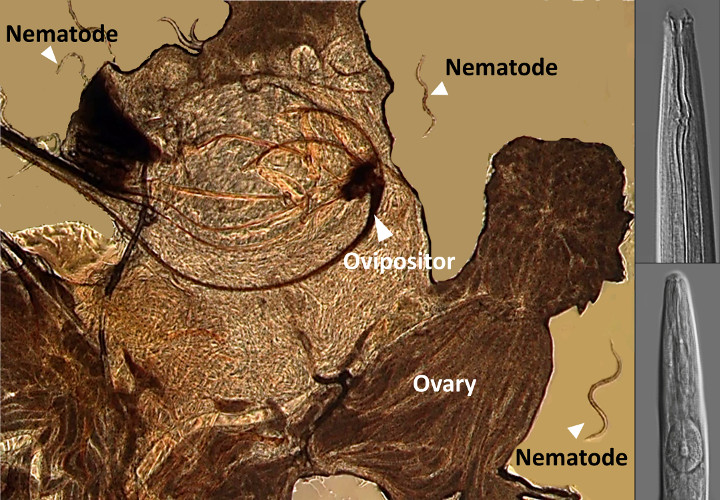New publication: How does nature deal with costly hitchhikers?
Fri, 2019-10-04 09:49
Summary:
Tiny organisms that are not very mobile could get marooned in unfavourable habitats if they are unable to hitch a ride on larger organisms that can take them to new suitable environments. Sometimes hitchhikers may be harmless but at other times their presence can be costly for the vehicle on which they travel. Hitchhiking might also interfere with linkages involving the vehicle. It therefore becomes important to understand how hitchhiking costs are kept low in nature. We chose to study the fig–fig wasp–nematode system, where figs and pollinating fig wasps are mutually dependent on each other, and nematodes are the hitchhikers that live within the fig fruit but are carried by wasps during dispersal from one fruit to another. These nematodes come in two types, one parasitic on the fig and the other on the wasp. We found that at low hitchhiker numbers both types of nematodes did not affect the wasp or the fig but high hitchhiker numbers had large detrimental effects on vehicle lifespan, flight capacity, offspring number, and risk of predation by ants. High hitchhiker numbers also decreased seed number and fruit volume. We therefore experimentally established that hitchhikers can have a negative impact on the mutualism between figs and pollinating wasps. Moreover, wasps that disperse from figs carry a higher average load of hitchhikers than those wasps that arrive at another fig to carry out pollination at the end of their journey, suggesting that during the hitchhiking process only wasps with low hitchhiker loads are able to successfully complete the ride. Therefore, one of the mechanisms by which nature controls the negative effects of these hitchhikers on the mutualism is by eliminating wasps with high nematode densities during the journey.
Reference:
Gupta S, Borges RM. Density-dependent fitness effects stabilize parasitic hitchhiking within a mutualism. Funct Ecol. 2019;00:1–12. https ://doi.org/10.1111/1365-2435.13451
Link to publication: https://besjournals.onlinelibrary.wiley.com/doi/abs/10.1111/1365-2435.13451
